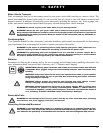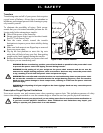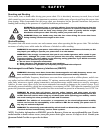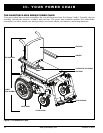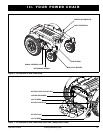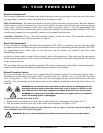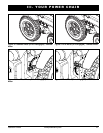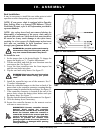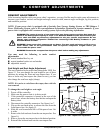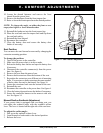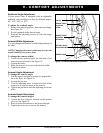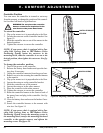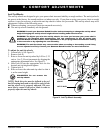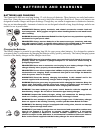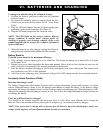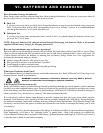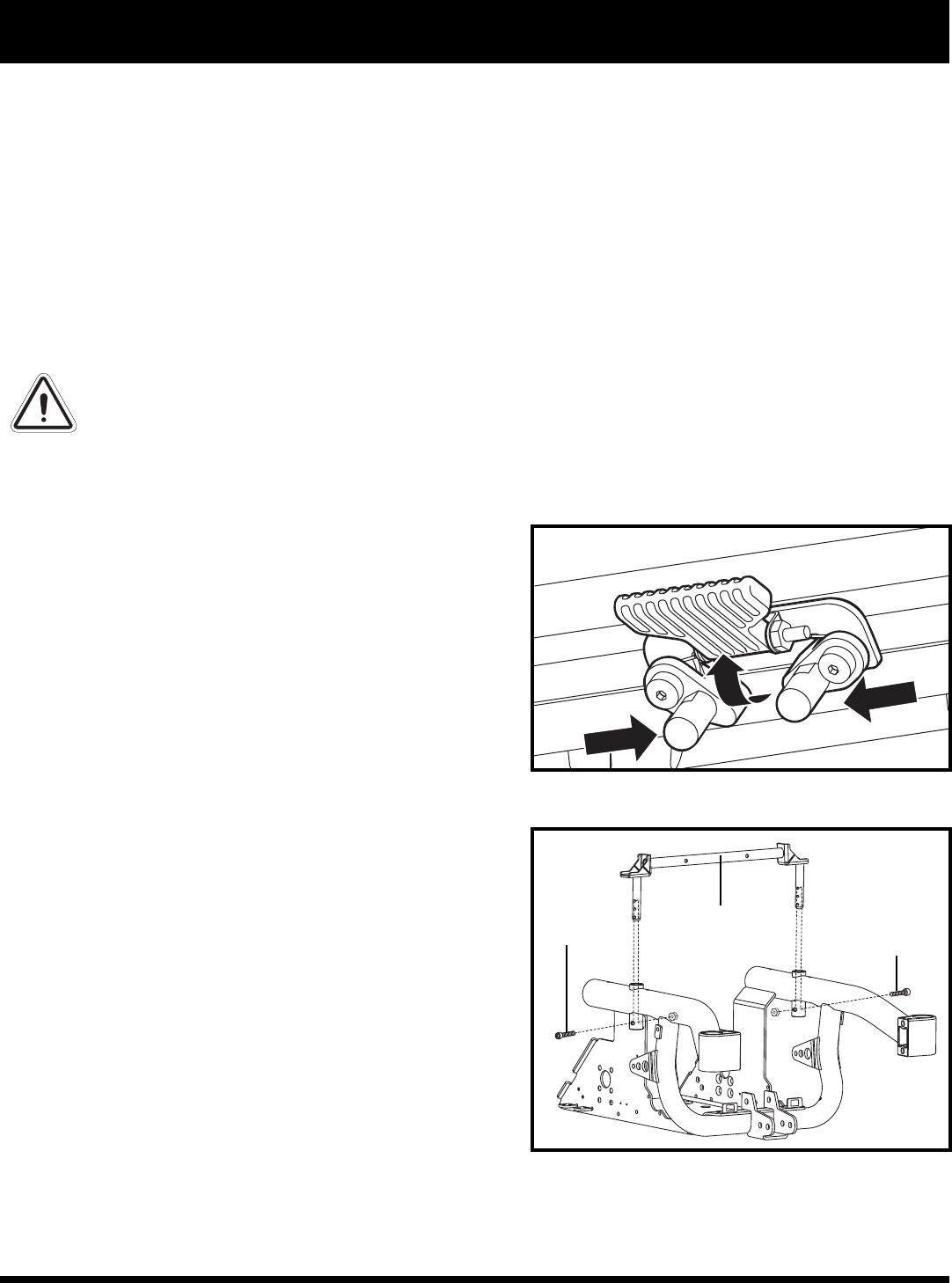
Quantum R-4000 www.pridemobility.com 23
V. COMFORT ADJUSTMENTS
COMFORT ADJUSTMENTS
After becoming familiar with your power chair’s operation, you may find the need to make some adjustments to
increase your comfort, such as seat height and angle, armrest width, armrest angle and height, leg rest position,
and controller position.
NOTE: If your power chair is equipped with a Specialty Seat, Synergy Seating System, or TRU-Balance 2
Power Positioning System, refer to the seat adjustment information contained in separate manuals. If your
power chair is equipped with a contoured seating system, refer to the following information.
WARNING! The center of gravity of your power chair was factory set to a position that meets the
needs of the demographic majority of users. Your Quantum Rehab Provider has evaluated your
power chair and made any necessary adjustments to suit your specific requirements. Do not
change your seating configuration without first contacting Pride Mobility Products or your
Quantum Rehab Provider.
WARNING! Some power chair components are heavy. You may need assistance to lift or carry
them. Please refer to the specifications table for specific component weights before you
disassemble the power chair.
WARNING! Remove the occupant from the power chair before making any adjustments.
You may need the following to make comfort
adjustments:
metric/standard hex key set
metric/standard socket set and ratchet
adjustable wrench
Seat Height and Seat Angle Adjustment
The seat is attached to the power base through the UMS. See
figure 12. You can change the seat height to one of three
positions by raising the front and rear trapeze bars. If you
raise or lower only one trapeze bar (front or rear), you can
also change the seat base angle (dump).
NOTE: It is easier to raise/lower the trapeze bars with the
seat removed.
To change the seat height or seat angle:
1. Power off the controller.
2. Make sure the power chair is in drive mode.
3.
If the controller connector is located at the rear of the
power base, release the battery door latches and open the
battery door.
4. Disconnect the controller connector. See figure 6 or 7.
5. Flip up the seat latch safety to release the seat from the
front trapeze bar. See figure 15.
6. Slide the seat forward and lift it off the power base. Set
it aside.
7. Remove the bolt and nuts from the rear trapeze bar. See
figure 16.
8. Raise or lower the rear trapeze bar to the desired position.
9. Reinstall the bolt and nuts into the rear trapeze bar.
Figure 15. Seat Latch Safety
Figure 16. Rear Trapeze Bar Adjustment
REAR TRAPEZE BAR
BOLT AND
NUT
BOLT AND
NUT



